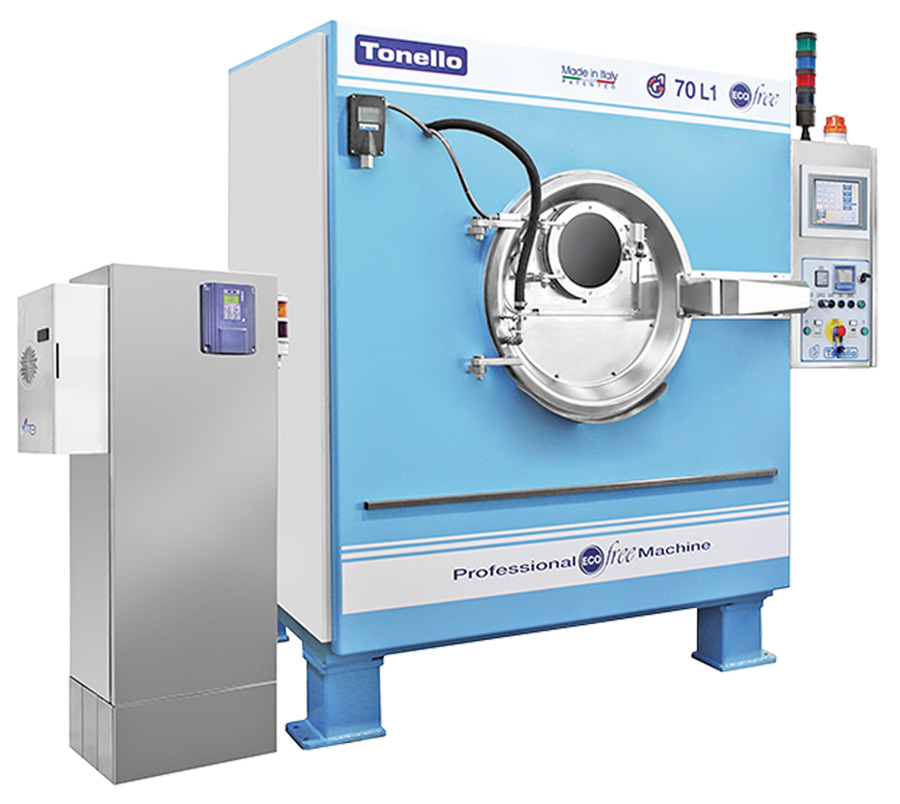
There seems to be hurry in the pace with which fashion and accessory retailers, and other stakeholders want sustainability targets accomplished in their value chains. Supporting the cause with equal vigour are the technology suppliers, be it in any segment. In denim, where product innovation is based on washes, the role of these technology providers is even bigger, more so as the end-customer is looking for both fashion and sustainability in one complete package… Flavio Tonello, Managing Director, Tonello Garment Finishing Technologies likens the situation in denim to the food industry. “In food industry today, organic produce has secured a prominent market share. When consumers shop, they check for the label. This consciousness wasn’t achieved overnight though.” Wash and finishing futurists like Tonello and Jeanologia have stormed into the denim scene with innovative technologies and stimulating perspectives on the juxtaposition of market, environment and nature. “Now the time has come to actively change the way our factories are made, planned, and function,” affirms Manuj Kanchan, GM, South Asia – Jeanologia.
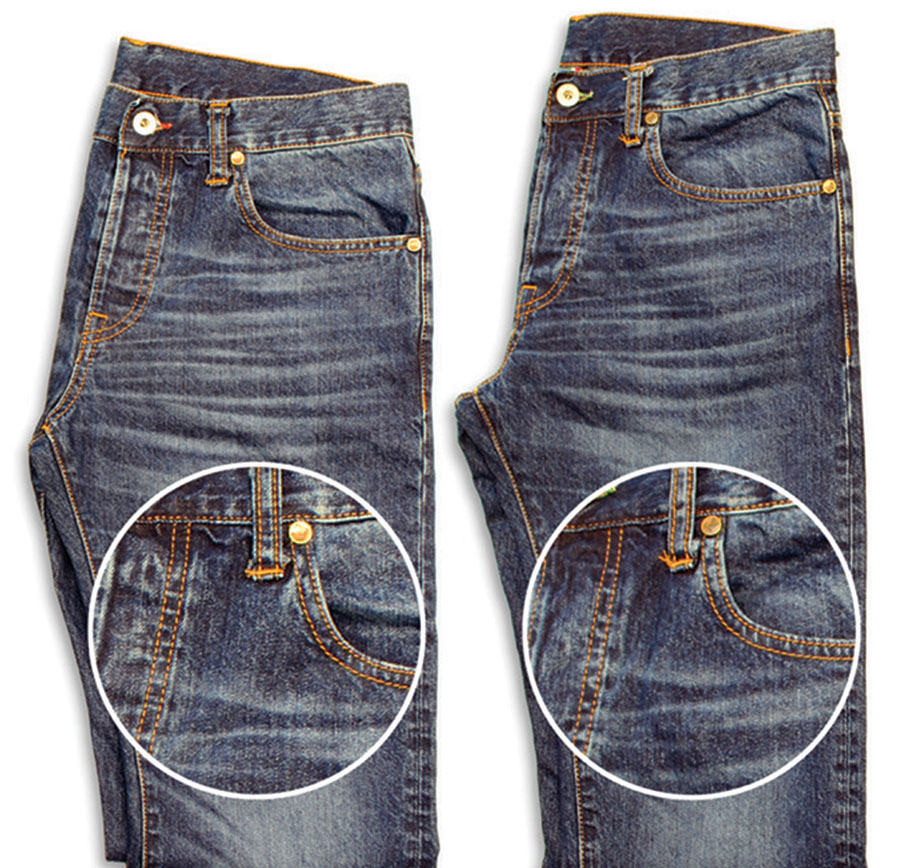
Tonello offers denim sans harmful chemicals and stones
“We need sustainable technologies because to think of increasing production with this level of pollution will be a disaster,” shares Flavio, the Italian-origin denim finishing pioneer. The company has for long presented sustainable solutions and continues to hold the interest of retailers and buyers. “In the future, the consumer will become growingly aware of where their clothes are coming from, which is very similar to checking the food for organic label,” claims Flavio.
The technology solution which is the latest one to grab the industry’s attention is ECOfree – an ozone washing system that has set new benchmark for ‘healthier and more beautiful garments’. With ECOfree, the ozone is dissolved in water and the indigo is degraded during washing. Moreover, ECOfree guarantees reduced consumption of water, energy and chemicals, as the ECOfree enzyme process comprises of only three baths (desizing + enzyme wash, ECOfree bath cleaning + Neutralizing, and Softener Wash) as compared to the standard six-bath enzyme wash process. The ECOfree process is also designed to give more pronounced denim effects and better performance than traditional systems, even in terms of eco-sustainability and worker safety. Curtailing water consumption by 50-80 per cent, the process is set to find immense relevance as natural resources are now stretched to the thinnest.
Get Access to more Innovation articles from
APPARELRESOURCES.COM. SUBSCRIBE TODAY
“The process can be scaled according to the requirements – whether sampling or actual production runs – while ensuring there is less back-staining on pockets and denim wefts,” shares Flavio. The technology finds application in Tonello G1 ECOfree Ozone washing machine. Being fully automatic, the users of this machine have complete control over the reproducibility of output. The machine is equipped with a chiller – to keep the temperature of the ozone generator under control, an ozone generator which functions using either air or concentrated oxygen, an ozone destroyer – useful in complete elimination of ozone generated, and an ozone dissolving system which mixes the ozone in water for disintegrating the indigo.
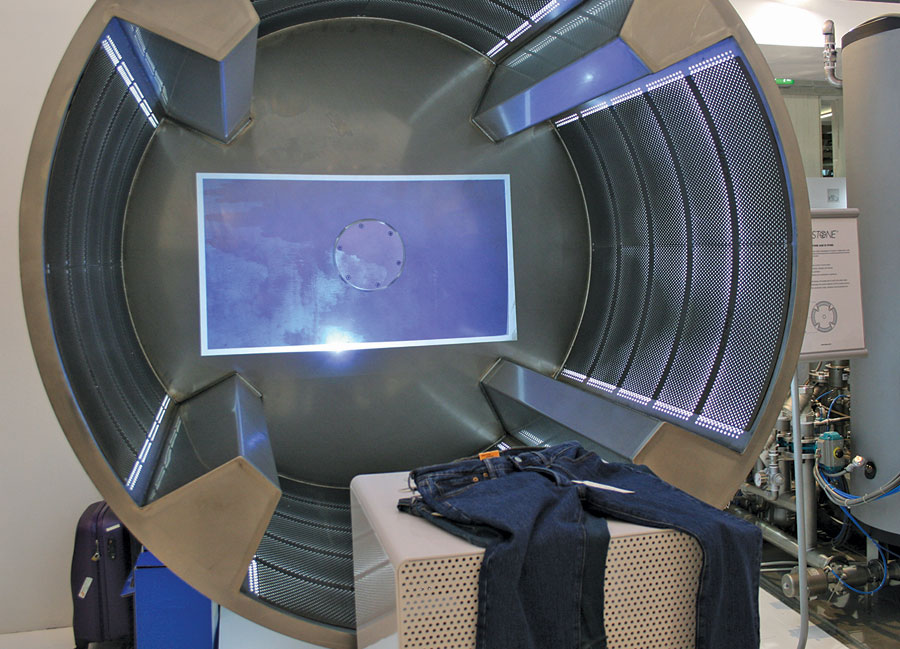
NoStone® is another disruptive advancement made by Tonello in the arena of denim processing. The technique is designed to overcome economic, mechanical and environmental limitations of existing stone-wash processes. The NoStone® system eliminates the use of pumice stone, replacing it with a stainless-steel abrasive drum, fastened to the washing machine. This drum can create a variety of finishes through flexible abrasion adjustments to create the look and styles. Due to the mechanical – rather than chemical – nature of the process, the NoStone® effect is the same as that of stone-wash and reduces the carbon footprint created by using pumice stones. NoStone® was developed to be applied in all Tonello machines and maintains the same load capacity, enabling easy adoption throughout denim manufacturing facilities. The lining can easily be removed, so the machine can also run normally during washing and dyeing processes.
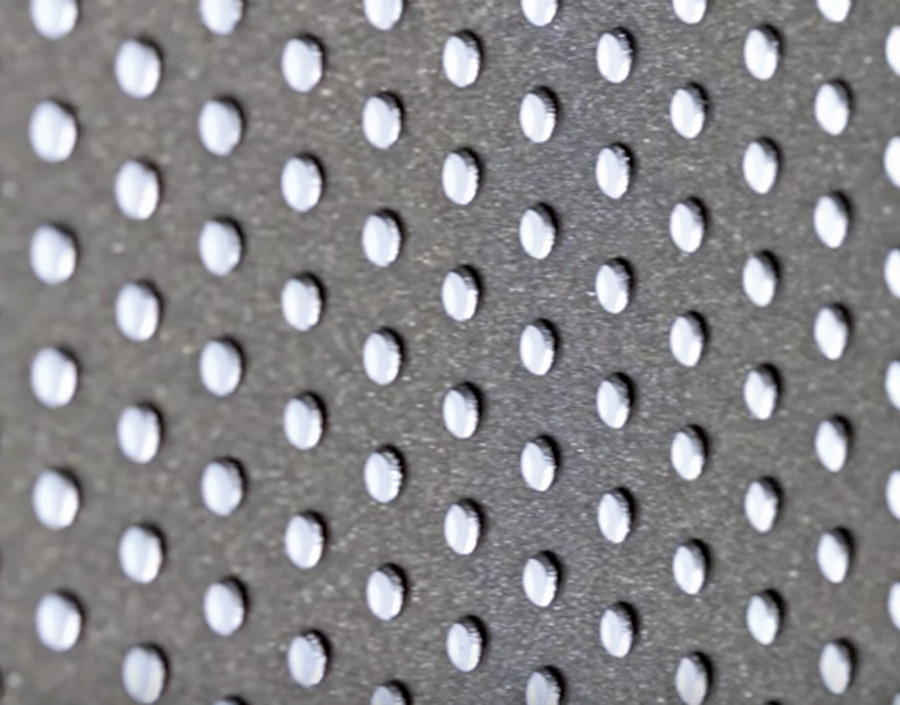
Conventionally, whitening and abrasion processes for jeans are achieved either with permanganate sprays or with manual brushing, and both the procedures are harmful to the eyes, skin and respiratory system. The Water Brush from Tonello overcomes these shortcomings using water for whitening. Interestingly, the Water Brush runs on water but consumes none as a large tank beneath the spray robot collects the water used for whitening the garment, filters it, and sends it back to the robot through a recirculation system. The highlight again is reduced consumption of resources, and zero impact on environment and operators.
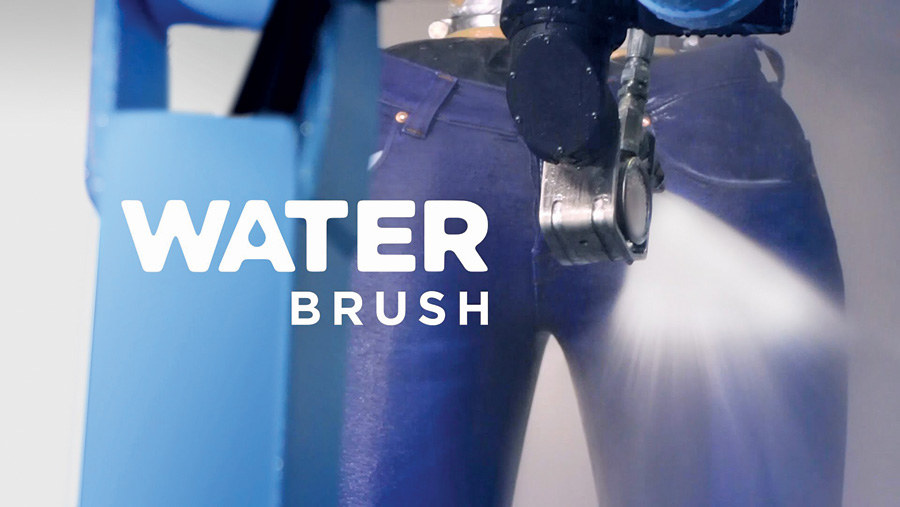
The most exciting development from Tonello is its Multicolour Laser as it uses laser, which has been till now used to discolour or cut fabric, to impart a colour to the fabric. As the name suggests, the technology is capable of furnishing different colours on a denim (or any other fabric) substrate by homogeneously applying a resin (developed by Zaitex) onto the garments. The resin is then permanently imprinted on the fabric through a special setting of Tonello Laser.
Another technology from the company – Core can be applied to Tonello washing and dyeing machines, capable of creating uniform or contrasting effects on both denim and ready to dye garments. It is fully interfaced with the machine and can be implemented in any production cycle without interrupting the process. Moreover, it drastically reduces water use with a liquor ratio of 1:1.
“In a market where customers, instead of the brands, are guiding the dynamics, I am very positive that the end-consumer will be willing to pay something more for a safe garment,” says Flavio, certain that cheap clothes and cheap fashion may not be the order of the day anymore, which is incentive enough for manufacturers to invest in environment-friendly technology.
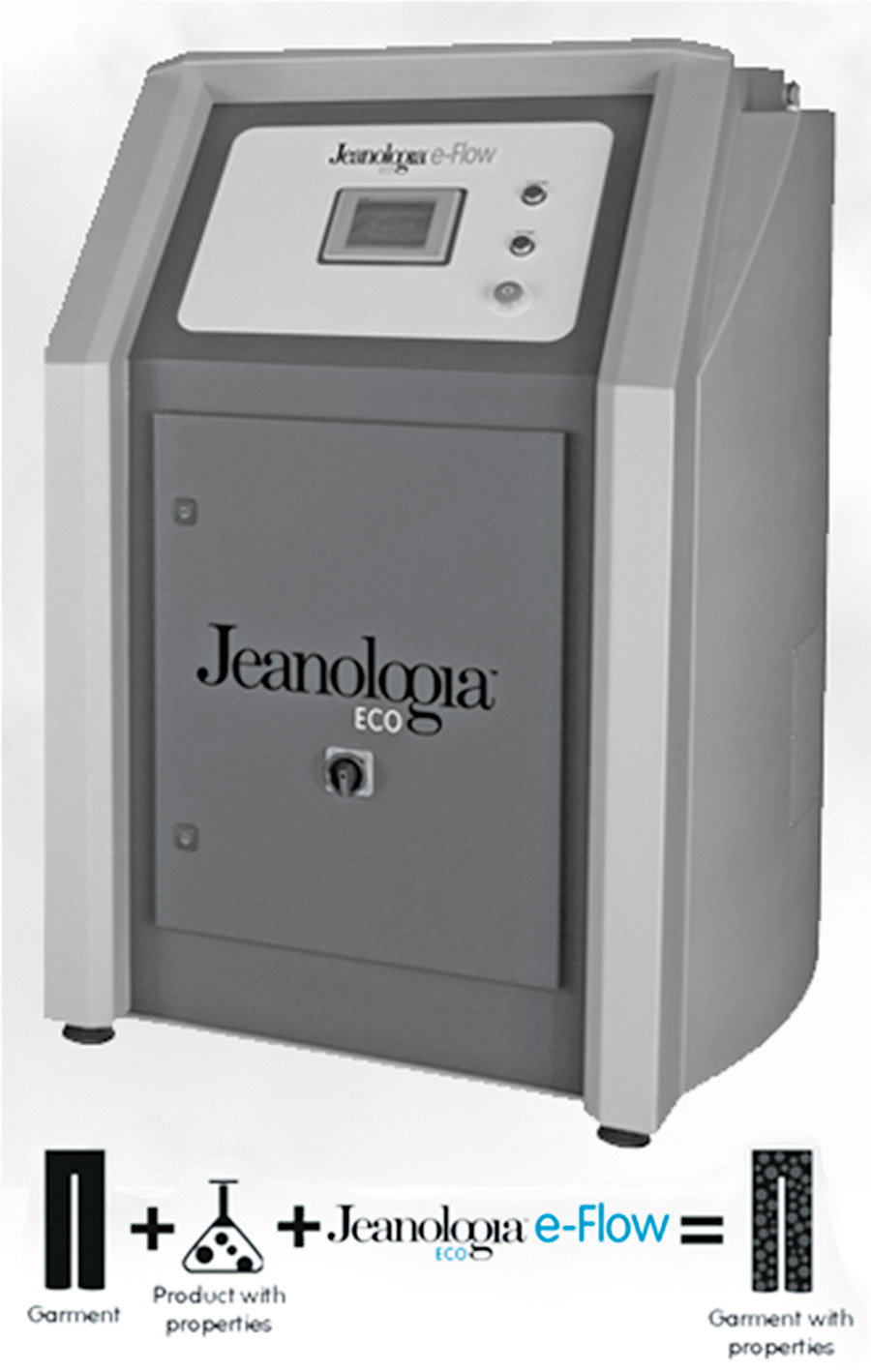
Jeanologia enabling waterless finishing of denims
For long, denim garments have been reputed as one of the most polluting items of clothing as they continue to tax the environment throughout their lifecycle. Jeanologia, the Spanish innovator of denim finishing technologies, has broken the legend time and again with its solutions. Manuj Kanchan, GM – South Asia, Jeanologia maintains that fashion is a 360° process where ideas such as lead time, price, design, quality, compliance, and sustainability are treated with equal importance. The only way a step ahead can be taken is with technology that can convert dirty processes to clean processes, thus saving on time, energy, and manpower.
Looking at enabling the transition in the industry, Jeanologia laid emphasis on TwinHS – a machine utilizing laser light for the creating wash effects on denim. Equipped with 2 laser resonators of maximum power and designed for mass production volumes, TWIN is touted to be amongst the most productive and fastest laser in the market with an output of 4,000 5-pocket jeans per operator per day. “It does produce at the speed of light,” shares Manuj. Each operation is controlled by an artificial vision camera so as to ensure no time is wasted on secondary operations and the operator can keep a tab on the progress of a design. The rotation speed of its dummy and its easy placement for the garment help speed up the process. Its dual marking system and an exclusive digital power control allow working on both jeans legs at the same time.
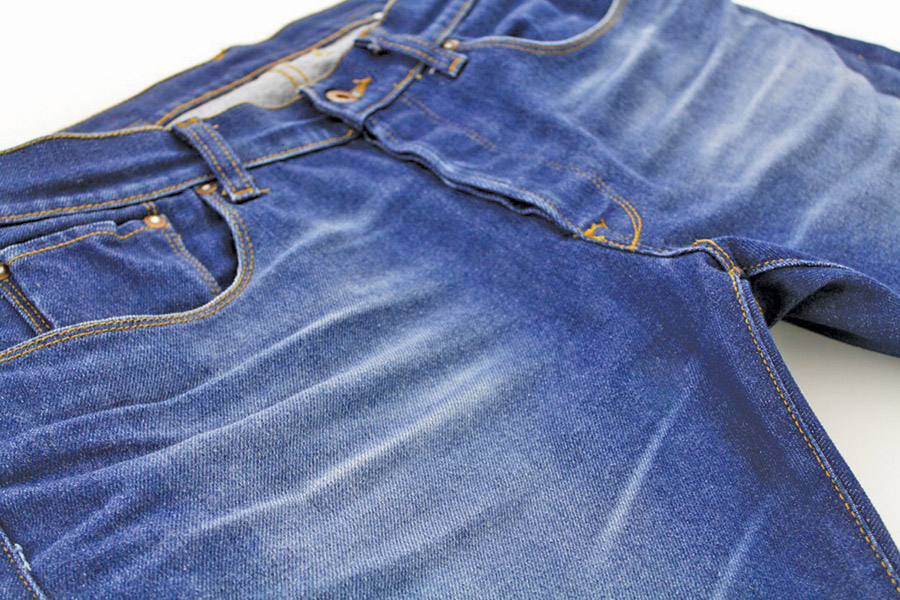
Continuing its endeavour of eco-friendly denim processing, Jeanologia has an innovation – e-Flow from its ECO range in which the air from the atmosphere is transformed into nano-bubbles. Products and water are then naturally distributed and create the nano-bubble skin, a perfectly homogenous mix between water, products and air. The skin of the nano-bubbles is responsible for transporting the properties of the product to the garment in an optimal and efficient way. The technology finds application in softening, resins for 3D effects, and wrinkle-free and water-repellent finishes. The machine can be connected to an existing dryer or washing machine. Savings from the e-Flow technology are to the tune of 95 per cent reduction in water consumption, 50 per cent less chemicals, and 79 per cent less electricity.
“Jeanologia is proud to be a part of the jeans industry. It has a history which is deeply rooted in the blue indigo. Now the time has come to actively change the way our factories are made, planned, and function,” concludes Manuj.






